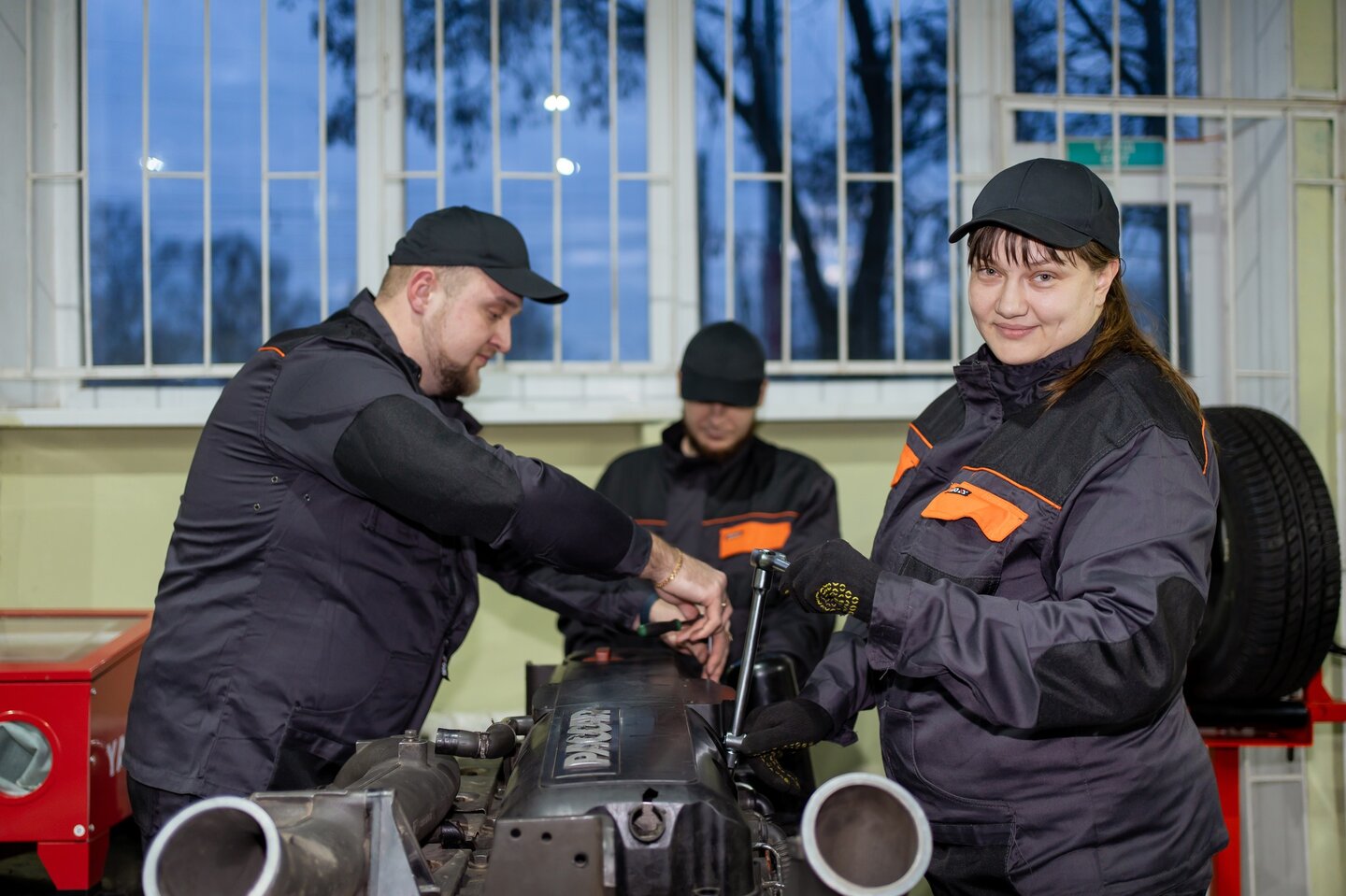A speeding car hits a man named Jay. He receives first aid to stop the bleeding. An ambulance takes him to the hospital, where they operate and mend the broken bones. Jay starts physiotherapy and goes back home.
Communities can be stricken in similar ways. Instead of a runaway car, it may be a violent earthquake or a neighboring country’s missiles. Both are examples of “sudden onset” disasters (natural and man-made). In other cases, disruption unfolds more slowly, such as the recent multi-year droughts in the Horn of Africa.
To overcome such shocks, communities undergo the same stages as Jay’s treatment: stabilization, early recovery and readaptation. Sometimes they regress, particularly when repeat crises occur. Customizing, layering and sequencing humanitarian responses requires intimate knowledge of the local context and a long-term presence on the ground. This is why Helvetas’ humanitarian work prioritizes responding to situations where the organization or its Alliance2015 partners have committed to long-term engagement.
An ounce of prevention and mitigation is worth a pound of cure
Seatbelts have saved countless lives. Disaster Risk Reduction (DRR) works the same way. Its cost effectiveness is highest in disaster-prone areas, which may also be mired in poverty, poor governance, environmental degradation or the effects of climate change.
Helvetas therefore supports its partner countries in addressing those sources of fragility through economic development initiatives, support to governance structures, environmental restoration or climate change adaptation. We also accompany vulnerable communities in their efforts to reduce risks by bringing together traditional knowledge and the latest know-how on adaptation and mitigation.
In Haiti, for example, Helvetas supports sustainable forestry, consolidating unstable slopes and regulating water cycles. We also build the capacities of municipalities to lead disaster risk management among their communities. This is followed by municipalities and civil society organizations working together to implement preparedness measures.
In Ethiopia’s Borana region, Helvetas pioneered commercial cattle “destocking.” This curbs overgrazing, while helping locals reduce their vulnerability to a looming drought. Traditionally, herders might spend all their resources on keeping the animals alive, possibly losing them eventually anyway. Given the length of the drought, commercially destocking means that herders preserve their capital, using it to bounce back once the rains return.
These preemptive measures lessen the toll of future downturns, shorten recovery time and reduce the number of affected individuals. But even if preparedness reduces the impact, it cannot eliminate the need for rapid response in a crisis.
First, stop the bleeding: Early focus is on stabilization
Key to Jay’s treatment was the sequencing of the medical aid. At first, the priority was stopping the bleeding and immobilizing him to prevent further damage. While at the hospital, he started physiotherapy to keep his mobility. This is akin to “nexus” programming, where the recovery is built in as soon as its technically viable.
When a disaster hits, the priority is preserving human life. The focus then turns to protecting assets and covering basic needs. In Ukraine, for example, Helvetas has set up “repair ambulances” that allow rapid deployment of help after a bombing. In the frigid Ukrainian winters, timely responses that keep shelters warm and preserve infrastructure make all the difference.
In the aftermath of a crisis, communities need food, clothes and medicine. When market conditions allow, Helvetas prefers direct “cash” assistance over the physical distribution of goods. Recipients can thus spend the money on their personal priorities — not on what is decided for them.
Cash programming sows the seeds of economic recovery, just like early physiotherapy did for Jay’s rehabilitation. The alternative — in-kind distributions — hurts local vendors, who cannot compete with free giveaways. Cash assistance injects money directly into the local economy, propping up local businesses. It also allows aid to reach more people because of its inherent cost-effectiveness.
Recent work in Myanmar also illustrates the benefits of cash assistance. After a 7.7-magnitude earthquake in March, Helvetas quickly distributed emergency cash to over 7,200 highly vulnerable households. With local markets still functioning despite the widespread destruction, this was the most effective and dignified option. Post-distribution surveys show that that the cash is not just used for food, medicine or shelter repair — it’s also used for unanticipated priorities such as burial costs.
Unrestricted cash assistance is most effective when distributed early, like in Myanmar. The goal is preventing “negative coping” that undermines families’ ability to bounce back. This would include selling livestock at a low price to meet urgent needs, illegal migration or taking children out of school.
Strong pain medications carry warnings to limit long-term use. Similarly, cash assistance can lead to disempowerment, aid dependence and unstainable aid budgets if it goes on for too long.
Working towards recovery
Jay could look to the future following his successful operation. The acute phase was behind him. But there was still a long road ahead to full rehabilitation — and it’s the same for affected communities.
The dust eventually settles in the aftermath of a large-scale disaster. Life needs to go on, even if it could never be the same. Communities’ road to economic reconstruction is often long, with pitfalls along the way. This is when the primary emphasis for support moves to productive asset recovery and inclusive market development.
In Cox’s Bazaar, Bangladesh, Helvetas enabled Rohingya women to grow food, even in the small spaces around their shelter at crowded refugee camps (e.g., through “sack” gardening). Local farmers also learned methods to improve productivity and strengthen market links. Instead of just delivering this assistance and moving on, Helvetas chose a systemic approach where service providers from host communities provide hands-on training and regular follow-up to the refugees. This incentivized the creation of a marketplace for such services, which are still being provided, even after Helvetas’ project ended. In addition to better agricultural practices, bringing refugees and local service providers together created opportunities to strengthen trust and social cohesion. Local farmers also set up vegetable gardens and, with improved market access, boosted household incomes and overall household nutrition.
Further north, in 2022 devastating floods in Chitral, Pakistan, wiped out homes, farmland and infrastructure, leaving thousands without the means to make a living. Helvetas’ crisis response involved restoring irrigation systems and repairing access roads (sometimes using “cash for work” programs, which afford otherwise unemployed persons a modicum of income in return for clearing up and helping restore infrastructure). This support allowed farming communities to resume activities quickly, bringing a stabilizing effect on food security and reduced dependence on aid. In the longer term, Helvetas focuses on farmers’ resilience by introducing climate-smart agriculture while supporting soil and water conservation.
Helvetas and its Alliance2015 partner, People in Need, followed a similar logic when designing programming that followed the early response to the deadly earthquakes in southern Turkey in 2023. The intervention gradually shifted away from basic needs, psychosocial support and unrestricted cash to restoring irrigation infrastructure, repairing animal shelters and developing new income-earning opportunities.
These are not isolated activities. They are carefully sequenced and layered to bring about household stabilization while setting the scene for asset restoration and market linkages. Later on, it is critical to build resilience into the system so that future shocks are less destructive.
However, the difficulty of this work is compounded when operating in a war zone, such as Ukraine.
Building resilience, even under artillery fire
In Ukraine, Helvetas links urgent recovery needs with long-term development to strengthen economic resilience amid ongoing war. The focus is on restoring livelihoods and creating jobs through targeted support for micro, small, and medium-sized enterprises.
Early measures aimed to preserve economic activity in areas close to the front. This included awarding over 300 business grants and providing advisory services on legal, tax and financial issues under martial law. Helvetas piloted a job placement model for vulnerable groups across Kharkiv, Poltava and Sumy, opening pathways to employment for those most affected.
Building human capital is also central to supporting Ukraine’s recovery and developing a more inclusive economy. Helvetas supported Ukraine’s new Law on Vocational Education and collaborated with a dozen vocational education and training institutions to deliver practice-oriented courses aligned with employers’ needs, thus moving away from dated, Soviet-era curricula. We also conduct nationwide labor market studies that inform government policy and help identify in-demand skills. This is critical for creating opportunities for women and persons living with a disability, many of whom are war veterans, to access occupations that were traditionally denied to them.
In pursuit of an inclusive market systems approach, Helvetas collaborates with both the private and public sectors to help shape economic policy. For example, together with its partners, Helvetas has developed an export dashboard, a catalogue of export-promotion tools and a marketplace of digital solutions. As a result, war-affected businesses have gained tools that allow them to recover and grow by creating jobs, generating income and stimulating community development.

Principled action helps sidestep pitfalls
Regardless of the context, Helvetas’ humanitarian response follows three guiding axes: empowering local actors; working through a nexus approach by interlinking short- and long-term interventions; and applying sustainable, systemic market-based approaches.
This is why we have signed the Charter4Change, a localization initiative launched at the 2016 World Humanitarian Summit. Charter signatories are committed to empowering and shifting resources to local actors who better understand social dynamics, access pathways and informal market rules. They are often the first responders. Local NGO partners, such as DESPRO in Ukraine or the Guardian Network in Myanmar, have added immense value to Helvetas’ response programs.
For the communities Helvetas serves, the path is less linear. The COVID-19 pandemic, for example, pushed back progress on systemic achievements ranging from girls’ literacy to disaster readiness.
Conflicts can flare back up at any time. And sometimes the interlinked challenges simply become overwhelming. Recurrent outbreaks of violence in Ethiopia have compounded the challenges relating to climate change and desertification. Ongoing in-country fighting complicates humanitarian access in Myanmar, where villages can become off-limits to humanitarian NGOs overnight. In Haiti, growing insecurity jeopardizes hard-won gains. And the full-scale war in Ukraine will soon enter its fourth year with no sign of abating.
Jay’s story has a happy ending because he received the appropriate medical care at the right time. Helvetas’ humanitarian response efforts follow a careful sequencing that is calibrated to local needs, with recovery in mind from day one. Experience in Myanmar and elsewhere shows that early interventions, such as cash assistance, play a decisive role in helping those affected prioritize their most urgent needs.
Jay also benefited from access to qualified professionals and a well-functioning hospital. In the humanitarian space, Helvetas strives to build the same type of systemic strength, whether by empowering Haitian municipalities to reduce disaster risks, creating market incentives in Bangladesh, supporting Ukrainian veterans to develop their skills, or by helping Ethiopian herders bounce back.
Disaster situations are always complex and non-linear. They are certainly never easy for those that have no choice but to endure them. Our experience has shown, time and again, that carefully planned and sequenced action is our best shot at stacking the odds towards a path leading to sustainable recovery.
About the Author
Charter4Change: Advancing the Localisation of Humanitarian Aid
Charter4Change is an initiative led by both national and international NGOs to practically implement changes to the way the humanitarian system operates to enable more locally-led responses.
The Charter has been endorsed by over 1,100 national and local organizations from 57 countries across the world. Helvetas is one of 44 international NGOs that have signed the Charter and committed to implementing its principles.









